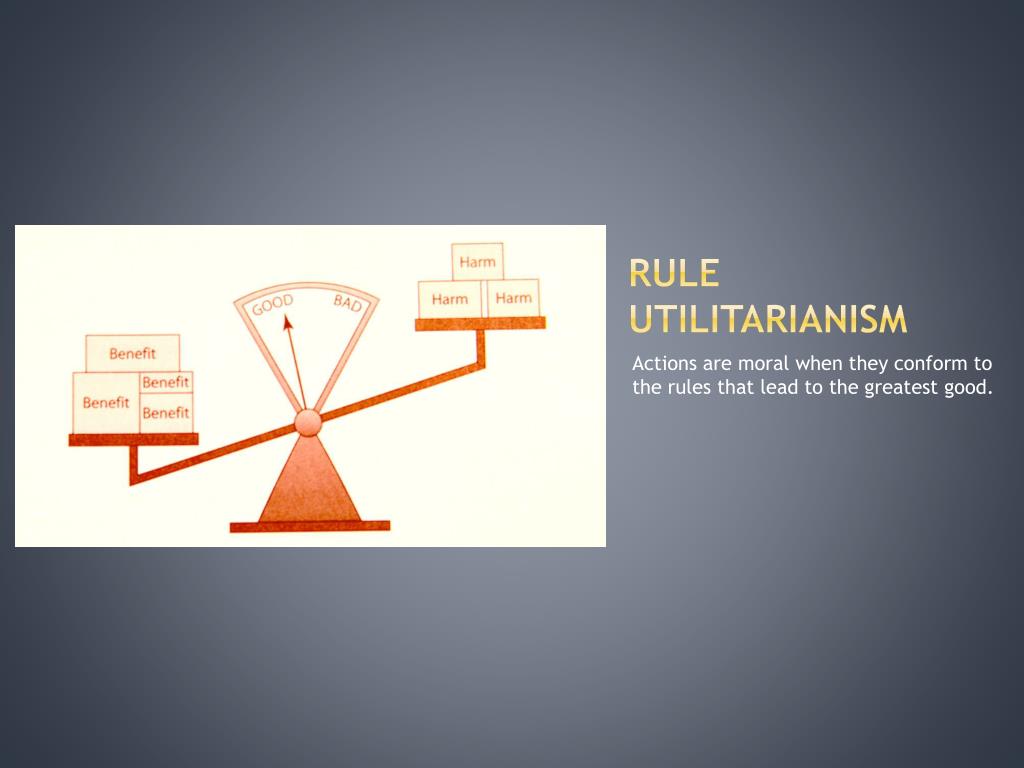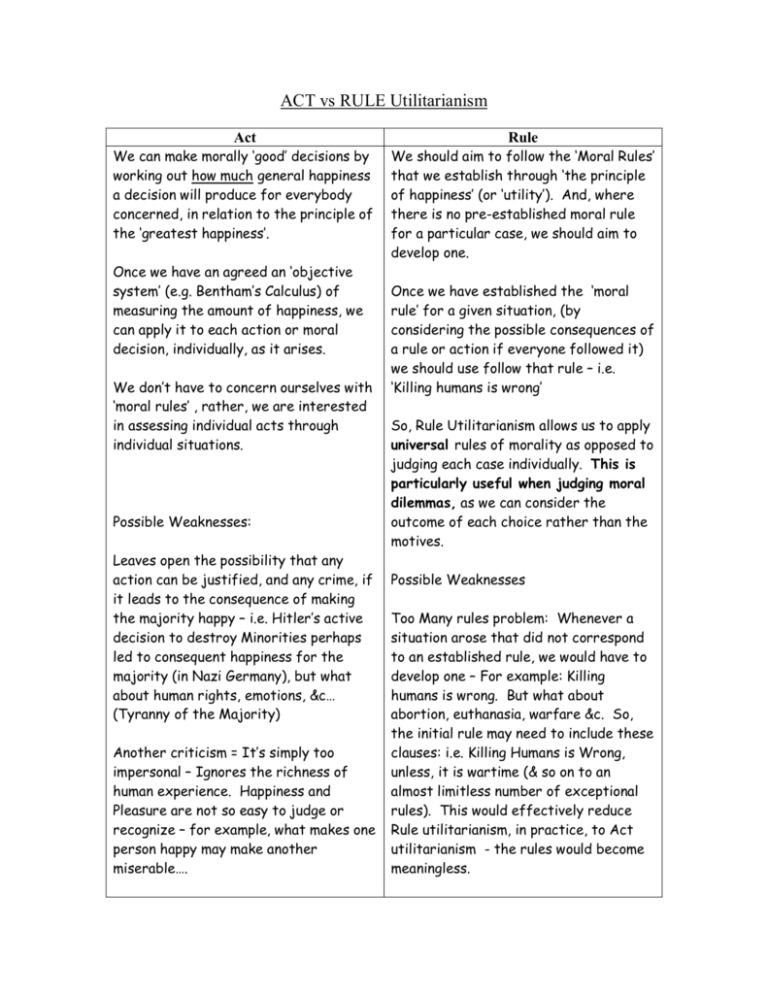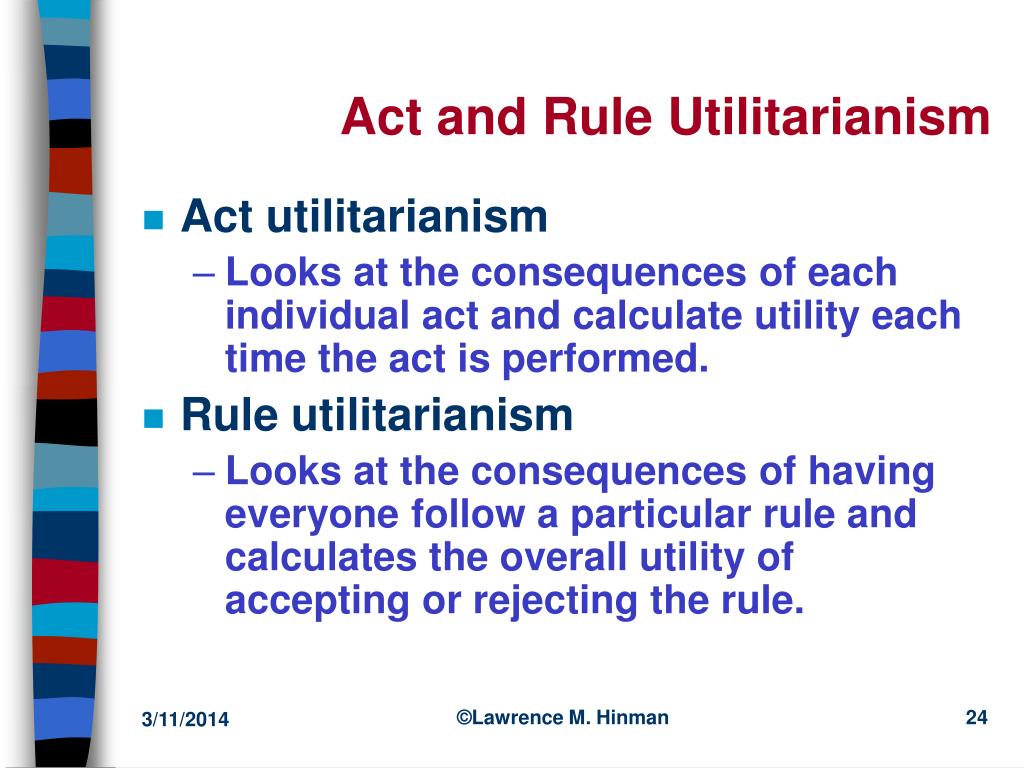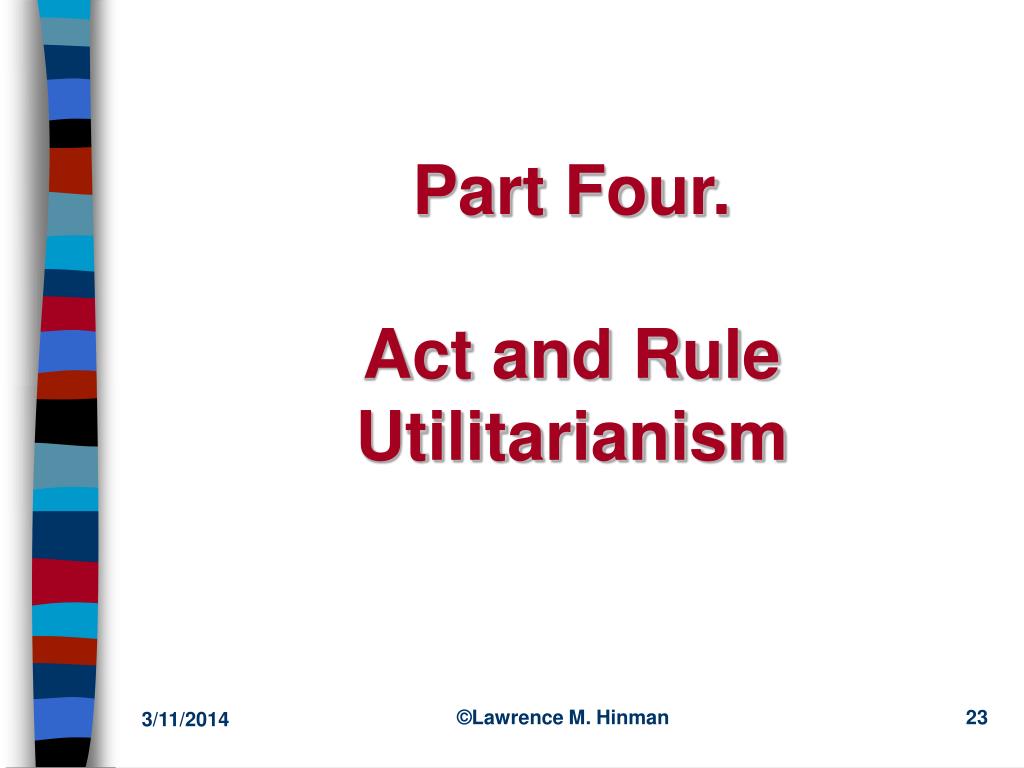

From a deontological perspective, an act is simply right or wrong despite its consequences. From a utilitarian perspective, murder can be justified if its benefits outweigh the costs, for instance, if a murder of a dangerous criminal saves lives.

It is usually contrasted with deontological philosophy, which states that there are inviolable moral rules that do not change depending on the situation ( Greene, 2007b). Utilitarianism is an ethical philosophy stating that aggregate welfare or “good” should be maximized and that suffering or “bad” should be minimized. (4) Consideration should be given to dilemmas describing infants. (3) The most common set of dilemmas in moral psychology can be successfully used as a unidimensional measure of utilitarian/deontological moral inclinations, but would benefit from using weighted averages over simple averages.

(2) There is a unidimensional structure for utilitarian/deontological preferences behind the most often used dilemmas in moral psychology, suggesting a single latent cognitive mechanism. (1) No item needs to be dropped from the scale. In conclusion, three studies, pilot and an invariance analysis, systematically suggest the following. In addition, certain dilemmas have consistent error covariance, suggesting that this should be taken into consideration in future studies. We find reason to support a single-factor model of utilitarian/deontological inclinations. Finally, we ran a weak invariance analysis between the models of Study 2 and 3, concluding that there is no significant difference between factor loading in these studies. Results of Confirmatory Factor Analysis in Study 2 were replicated in Study 3. In Study 1, we used standard Exploratory Factor Analysis and Schmid-Leimann ( g factor) analysis results of which informed the a priori single-factor model for our second study.

We ran three different studies (and a pilot) to investigate the issue. In this paper, we examine the factorial structure of an often used set of 12 moral dilemmas purportedly measuring utilitarian/deontological moral inclinations. However, the field has been lacking a thorough psychometric evaluation of the most commonly used measures. Utilitarian versus deontological inclinations have been studied extensively in the field of moral psychology.


 0 kommentar(er)
0 kommentar(er)
